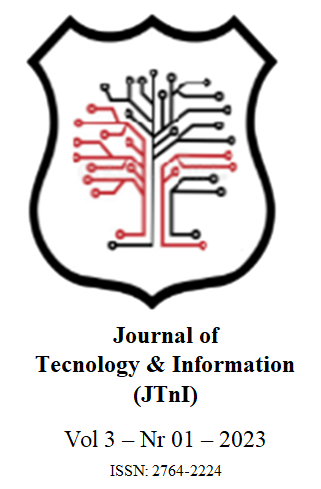Industry 4.0 and Food Delivery Applications
Keywords:
Food Applications, Industry, Revolution, Technology.Abstract
This article discusses and highlights the exponential growth of the technological use of food delivery applications in the years 2020 and 2021. Since the beginning, society has been in constant development and change, and in order to obtain greater productivity in its daily processes, it has promoted revolutions industries, accelerated processes with industry 4.0 and through technology has been taking place in people's daily lives, facilitating and transforming their lives and routines. In the methodology, there was a bibliographical research in books and scientific articles and the application of a questionnaire with six closed questions applied by the “google forms” form, in order to quantify the increase in the use of food apps during the period of the pandemic by COVÎD 19.
References
Bezerra, J. (2011). Biografia e resumo da Revolução Industrial. Toda Matéria. Disponível em: https://www.todamateria.com.br/revolucao-industrial/Acesso em: Acesso em 02 de novembro de 2022.
Cavalcante¹, Z. V., & da Silva, M. L. S. (2011). A importância da revolução industrial no mundo da tecnologia.
Cheng, C. (2015). Semantic degrees for industrie 4.0 engineering: deciding on the degree of semantic formalization to select appropriate technologies. In: European software engineering conference and the acm sigsoft symposium on the foundations of software engineering, 10, Bergamo.
da Silva, M. R. G. (2021). O crescimento das empresas de delivery no contexto da pandemia.
Fante, B. Z., & de Souza, V. V. C. (2021). A 4ª revolução industrial e seus impactos no futuro dos meios de trabalho. etic-encontro de iniciação científica-issn 21-76-8498, 17(17).
Furtado, J. et al. (2017). Indústria 4.0: a quarta revolução industrial e os desafios para a indústria e para o desenvolvimento brasileiro.
Gil, A. C. (2008). Como elaborar projetos de pesquisa. 6. ed. São Paulo: Atlas.
Guerra, J. H. L. (2000). Utilização do computador no processo de ensino-aprendizagem: uma aplicação em planejamento e controle da produção. São Carlos: USP-Universidade de São Paulo.
Hermann, M., Pentek, T., & Otto, B. (2015). Design principles for industrie 4.0 scenarios: a literature review. Technische Universität Dortmund, Dortmund, 45.
IFOOD.Institucional Ifood (2022). Disponível em: https://institucional.ifood.com.br/ifood//. Acesso em: 07.out .2022.
Lira, G. D. L. Indústria 4.0: os impactos das tecnologias habilitadoras nas estratégias de operações (Doctoral dissertation, Universidade de São Paulo).
Magalhães, E. D. S. (2016). A compressão do tempo e a formação de novos hábitos alimentares: reveses e possibilidades.
Magrani, E. (2018). A internet das coisas. Editora FGV.
Martins, G. de A., & Theóphilo, C. R. (2016). Metodologia da Investigação Científica Para Ciências Sociais Aplicadas (3ªed). Atlas.
Ponte Neto, E. D. S. (2016). I Food: um estudo sobre o comportamento de compra do consumidor.
Ramos, C. (1994). Pedagogia da qualidade total. Qualitymark Editora Ltda.
Sacomano, J. B., Gonçalves, R. F., Bonilla, S. H., da Silva, M. T., & Sátyro, W. C. (2018). Indústria 4.0. Editora Blucher.
Sanders, A., Elangeswaran, C., & Wulfsberg, J. P. (2016). Industry 4.0 implies lean manufacturing: Research activities in industry 4.0 function as enablers for lean manufacturing. Journal of Industrial Engineering and Management (JIEM), 9(3), 811-833.
Silveira, C. B. O que é a Indústria 4.0 e como ela vai impactar o mundo Citisystems, 2017. Disponível em: https://www.citisystems.com.br/industria-4-0/. Acesso em: 17 ago. de 2021.












